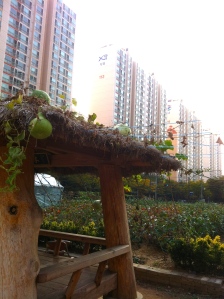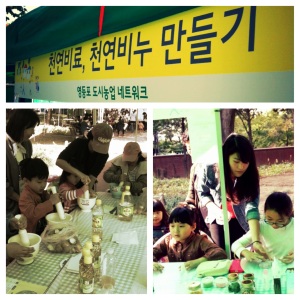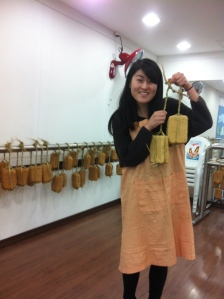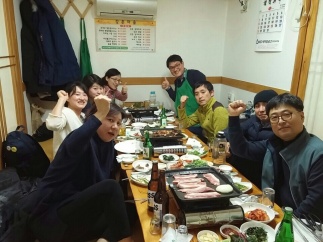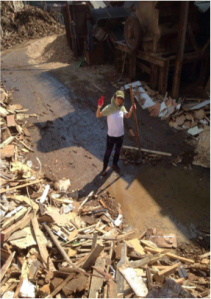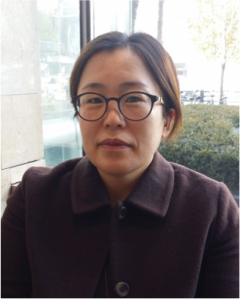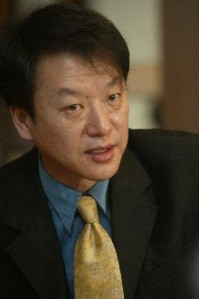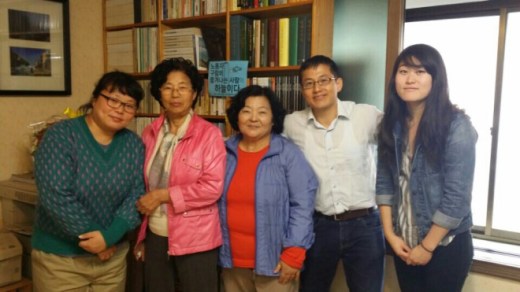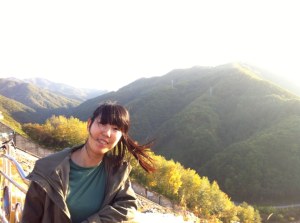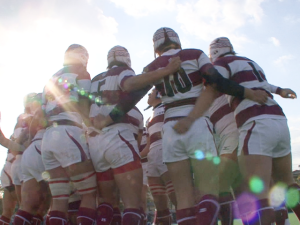Part of my internship with the ISC has involved participating in community externships with three community organizations affiliated with the ISC. From September – December, I volunteered with each organization one time every month. This experience has been helpful in helping me meet more members of the Korean social movement, to learn more about different sectors of Korean-centered progressive political work (since the ISC’s focus is international solidarity movements), and to above all get a sense of what being in and part of the activist community is like here in Korea. Having attended a women’s college, feminism is an important issue to me. Yet, as I learned by the end of four years’ time, ‘feminism’ as we tend to use it too often refers only to the experiences and difficulties of a certain group of women with certain economic, racial, and ability privileges, meaning that too often the experiences of women most at the margins get silenced or erased completely. Upon moving to Korea, I heard infinite variations of the statement “Korea is a patriarchal and sexist country.” Living in Jeollanamdo, where neo-Confucian-era gender traditions have prevailed more strongly than in other parts of the country, I experienced this for myself often enough, seeing how the female teachers were expected to serve the male teachers and clean up after them on the school picnic, and how my host-mom was expected to stay at home to raise the children even though she had a masters from Yonsei in teaching. Yet the ‘Korea is sexist’ mantra has always sat badly with me, not least because I seem to hear it most often from other foreigners, whose strangely smug way of saying it hints slightly of cultural superiority and condescension. Feminism is a problem in Korea from the foreign perspective, but the problem is tied to assumptions of Western cultural superiority – if Korea is a gender-unequal society, the reason is because they have not applied the proper (aka, the West’s) framework of feminism. However, such an approach ignores the particular history of Korea and the need for a movement rooted in that history. Thus, even when people attempt to address the issue in a well-meaning way, their efforts often fall into the trap of the white-savior complex, as they try to ‘teach’ Korea about the error of its sexist ways, all the while failing to interrogate their own privileges as expats, and – perhaps most egregiously – to recognize the Korean groups who are already doing feminist work in their own communities[1]. One such organization is 서울여성회, or the Seoul Women’s Organization. Founded in 2007, their role is forging a new direction for gender justice in Korea. The organization’s vision is based on the idea that, because of Korea’s traditional gender roles, women are socialized to take care of others. For example, after a woman gets married and has children, her title transforms to “So-and-so’s mother.” This is exemplary of the way in which Korean women’s societal roles have historically centered around the family, but also how, in doing so, it pressures her to prioritize her familial ties above all else, even herself. For these reasons, and in order to change society and gender discrimination, women’s organizations like 서울여성회의 began to emerge. Through being a part of such an organization, they feel, women can first begin to take care of themselves; then, by gathering and exchanging ideas, they can begin to change society as well. While they have a few major initiatives, such as holding events, including a “feminist academy” (or feminism reading group), one of their main initiatives has been the founding and running of 언니네작은도서관. 언니네작은도서관, or “Sister’s Library,” is a community library in Daerim-gu in Seoul. The area is known for its large migrant population (~84% of the area’s residents), as well as the multiple cases of sexual violence that have occurred in the area. In looking for ways to address the sexual violence problems, the 서울여성회의decided that establishing a community library was the best way to do so. In doing so, they could provide an essential community service (since before that time there was no library in the area) as well as reach members in the community (as they pointed out to me, a library is one of the rare community centers that has the potential to reach people across age and gender lines), in doing so building their organization and support for their vision. Much like the Urban Agriculture Network, My Sister’s Library believes in injecting a positive communal shift into the community that combats the dangers and distrusts of the area by creating a space for and encouraging the forging of new relationships between its members. The library’s programming reflects this, holding events such as story time for children, art projects and weekend excursions together, and a group for parents.
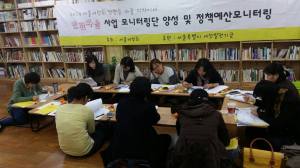
This isn’t actually my photo (nor is this what the library is generally like when I’m there – but I didn’t take many pictures there, so I took this from their facebook page to provide some idea of what the space looks like. Here, the group is holding a meeting to discuss their monitoring efforts of the “안전한마을,” or “Safe Village,” concept, put in place by the Seoul City Government, which utilizes CPTED (Crime Prevention Through Environmental Design) ideas.
So far, I’ve volunteered with them three times. The first time I helped with the preparations for a community play event that was being held at the library. Since the play was being put on by the New Generation Arts Collective (an awesome political arts troupe that shares office space with the ISC!), though, I didn’t really interact with the library staff much that time. The two other times I have volunteered during regular days at the library, which entailed checking in/checking out books for library patrons, manning the café, and looking up book titles on the national library website’s database to get the official library classification numbers. Yet, of all of the organizations I’m working with, I feel as if I know and understand this one the least. I think this is partly because of the more solitary nature of their work; on a regular day, everyone works at their desk in the office (as opposed to the chaos of the daycare, or the extracurricular nature of the urban agriculture network).
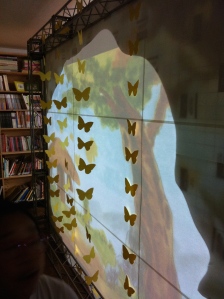
Behind the scenes of the community performance, which had to do with Sewolho and familial love… *tear*
However, it might also be that, because I had the most knowledge of this area (feminism) before coming in, I’m not coming into the experience with as fresh of a perspective because I can’t shake my preconceived notions of (US) feminism. For example, I’m not used to feminist organizations that center children or childcare – possibly it’s because of my age, but I also think that US feminism often distances itself from explicit ties to children, perhaps because it’s afraid of evoking the traditional image of women as the de facto childrearers of society, or perhaps due to the dichotomous, “having it all” nature that conversations around gender seem to have in America. I’m intrigued by why this might not be so much the case here in Korea; while the 서울여성회의 is geared towards women generally, the 언니네작은도서관 is very much geared towards women with children. This seems to be because a community library is firstly a good way to reach such a demographic, and secondly an ideal place to politicize the women who come there (as their kids can play or read while they attend study sessions or meetings). But, obviously, this is only certain female demographic. What about women who do not have children? Is reaching different kinds of women important to them? I also realized that I’m not sure exactly what feminism means to the organization exactly on an ideological level (besides the end of sexual violence and gender discrimination)… does Korea’s feminism have ‘waves’ like the US does? How does their feminism see itself in relation to class, sexual identity, even international oppression issues? Finally, I’m also interested in further investigating the relationship between the large migrant population in Daerim and the community library, and how they see this fact fitting into their larger vision of gender justice and equity (especially given the rise of ‘migrant wives’ in Korea… do migrant women or migrant populations fit into their fight for Korean gender equality?). What I’ve experienced so far has given me lots to think about. I don’t think I’ve ever experienced such a strongly community-based approach to gender justice before – nor have I ever been in a feminist space that so strongly embraces the presence of children. But despite the questions I still have, the benefits of both of these tendencies became most clear to me during the community play that I volunteered at. That evening, as people began showing up, I was pleasantly surprised to see almost everyone that I have been meeting and working with these past couple of months (even some of the kids from 다같이 놀자!). That was the first time that I felt like I truly understood some part of the feeling of community in Korea. So while I am still having some trouble understanding the link to the larger feminist aims of the organization, from that experience I feel the significance of the role that spaces like the 언니네작은도서관 play in helping build community, not just physically, but politically.
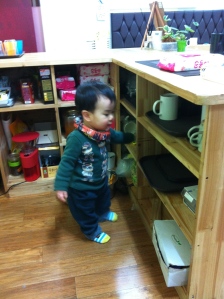
Creeping on cute random babies at the library while also convincing them not to put their hands in dirty cups/clean cups/coffee filters… probably the most real description of what I do there.
[1] Although I haven’t any direct interactions with the organization, Hollaback Korea seems to mirror many of these problems, as shown in this experience of a fellow former Fulbrighter: http://sincerelyanya.wordpress.com/2013/12/08/half-formed-thoughts-on-feminism-and-hollaback-korea/#comments.


